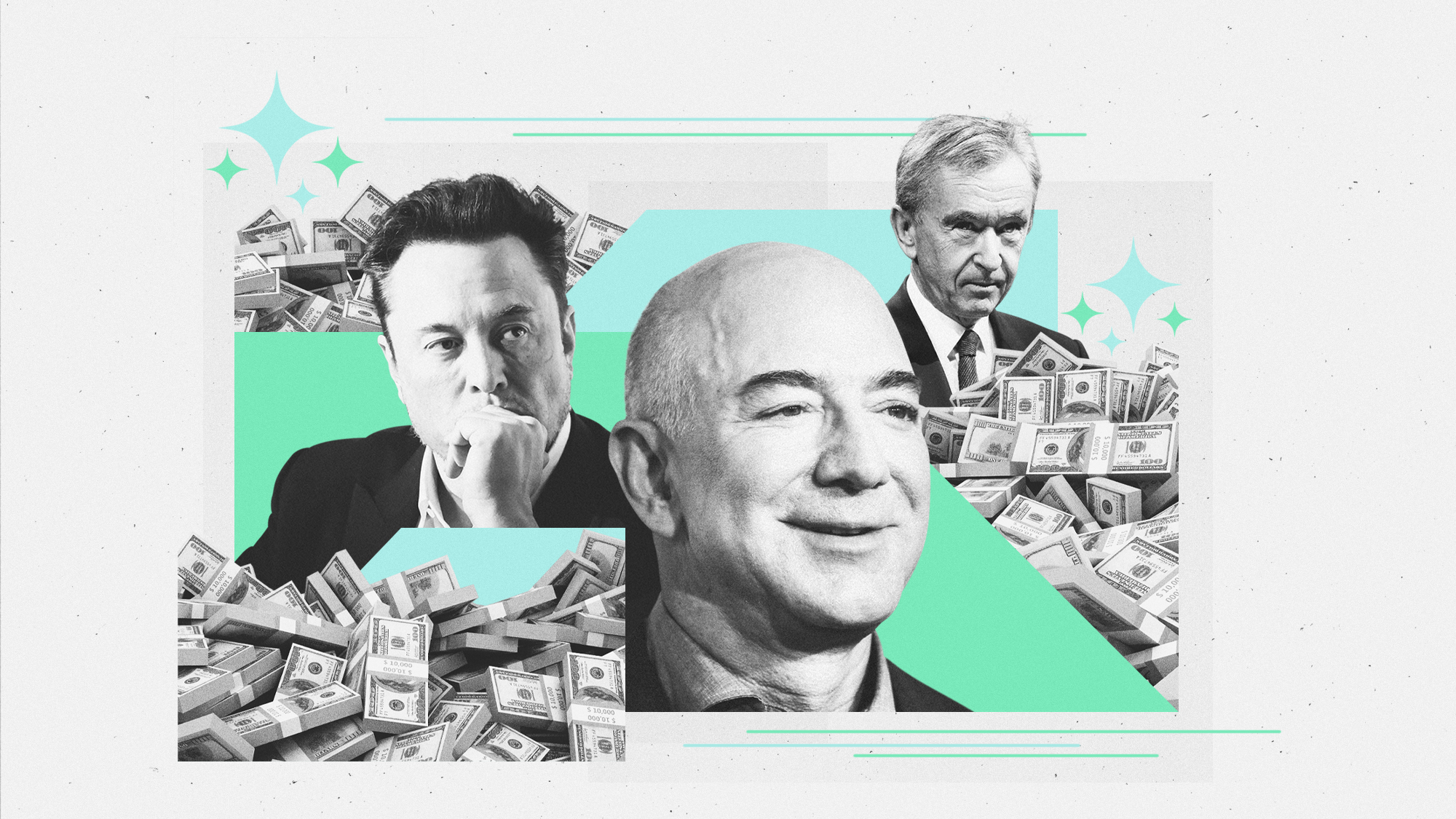How would an EU ban on Russian oil affect the price of gas in America?
A ban in Europe would have an impact on the entire world


A free daily email with the biggest news stories of the day – and the best features from TheWeek.com
You are now subscribed
Your newsletter sign-up was successful
Oil is one of Russia's top exports and the European Union is one of its biggest customers. The EU receives about a quarter of its crude oil imports from the Russia. The EU is trying to finalize another round of sanctions against Russia, including a ban on imports of crude and refined fuels, but Hungary, whose Prime Minister Viktor Orbán is an ally of Russian President Vladimir Putin, is opposed, saying such a move would be an "atomic bomb" on his economy. Here's everything you need to know:
Where does the world's oil come from?
The United States, Saudi Arabia, and Russia are the world's three biggest oil producers. While most of the U.S. supply is consumed domestically, China is the largest single buyer of Russian oil; in 2021, the country sold 1.6 million barrels of crude oil a day to China.
Why ban oil and why now?
The European Union's executive arm, the European Commission, is trying to piece together its sixth sanctions package against Russia, in response to the invasion of Ukraine. On May 4, European Commission President Ursula von der Leyen announced one of the proposals: a ban on Russian oil imports by the end of the year, with Hungary and Slovakia given an extension to the end of 2023. "Let us be clear, it will not be easy," von der Leyen told the European Parliament. "Some member states are strongly dependent on Russian oil, but we simply have to do it."
The Week
Escape your echo chamber. Get the facts behind the news, plus analysis from multiple perspectives.

Sign up for The Week's Free Newsletters
From our morning news briefing to a weekly Good News Newsletter, get the best of The Week delivered directly to your inbox.
From our morning news briefing to a weekly Good News Newsletter, get the best of The Week delivered directly to your inbox.
In order for this sanctions package to go through, it must be supported by all 27 members of the EU, and there has been some pushback. Slovakia gets almost all of its oil from Russia, and a government spokesperson told Politico the country wouldn't be ready for a total ban until 2025 at the earliest. In the last few years, Hungary has increased its oil imports from Russia, and Orbán said last week that the proposal now under discussion "creates a Hungarian problem, and there is no plan to solve it."
Would this EU ban have an impact on how Russia is funding the war in Ukraine?
In a March report, the European Federation for Transport and Environment said Russia was making $285 million per day just through European oil transactions. This is a major source of funding for the war, and stopping these payments would have an immediate impact. Von der Leyen warns that moving too quickly could cause more problems, and she is calling for action in an "orderly fashion" to ensure global markets aren't disrupted as well.
It's not likely that Russia will be able to sell all of its European oil allotment to other countries, but with phased sanctions, Russia will have more time to "find alternative buyers of their crude — there are plenty of willing buyers in India, China, and other parts of Southeast Asia," Ajay Parmar, senior oil analyst at the energy intelligence service ICIS, told Politico.
How would the EU ban affect the United States?
Energy markets are global, and after the EU proposal was announced, crude prices —which have already spiked because of the Russian invasion of Ukraine — jumped more than 4 percent. In the United States, the cost of a gallon of gas is directly affected by the global price of crude, NPR reports, and that's why the average price rose to more than $4 a gallon and is staying there, according to data from American Automobile Association. Since the Biden administration started releasing roughly 1 million barrels a day from the country's Strategic Petroleum Reserve, there has been some relief at the pump, but this emergency action is scheduled to end after six months.
A free daily email with the biggest news stories of the day – and the best features from TheWeek.com
As part of its sanctions against Russia, the U.S. has banned imports of that country's oil and gas, but prior to that, Russian oil only accounted for roughly 3 percent of total U.S. consumption in 2021, The Washington Post reports.
Is there a way for other oil producers to make up for deficits?
The 13-member Organization of the Petroleum Exporting Countries (OPEC) and its allies, known collectively as OPEC+, could theoretically start increasing production as a way to resolve shortages, but Parmar told Politico he doesn't see this happening anytime soon. There are a few reasons for this, NPR says, including the fact that Russia is a member of OPEC+, and if the Moscow feels threatened or leaves the alliance, it could cause the global price of oil to go up even higher. Additionally, several of the OPEC+ countries are already having a hard time meeting their quotas due to local unrest and conflicts, poor management, and underinvestment.
Catherine Garcia has worked as a senior writer at The Week since 2014. Her writing and reporting have appeared in Entertainment Weekly, The New York Times, Wirecutter, NBC News and "The Book of Jezebel," among others. She's a graduate of the University of Redlands and the Columbia University Graduate School of Journalism.
-
 Political cartoons for February 21
Political cartoons for February 21Cartoons Saturday’s political cartoons include consequences, secrets, and more
-
 Crisis in Cuba: a ‘golden opportunity’ for Washington?
Crisis in Cuba: a ‘golden opportunity’ for Washington?Talking Point The Trump administration is applying the pressure, and with Latin America swinging to the right, Havana is becoming more ‘politically isolated’
-
 5 thoroughly redacted cartoons about Pam Bondi protecting predators
5 thoroughly redacted cartoons about Pam Bondi protecting predatorsCartoons Artists take on the real victim, types of protection, and more
-
 The rise of the world's first trillionaire
The rise of the world's first trillionairein depth When will it happen, and who will it be?
-
 The surge in child labor
The surge in child laborThe Explainer A growing number of companies in the U.S. are illegally hiring children — and putting them to work in dangerous jobs.
-
 Your new car may be a 'privacy nightmare on wheels'
Your new car may be a 'privacy nightmare on wheels'Speed Read New cars come with helpful bells and whistles, but also cameras, microphones and sensors that are reporting on everything you do
-
 Elon Musk used Starlink, which saved Ukraine, to thwart a Ukrainian attack on Russia's Crimea fleet
Elon Musk used Starlink, which saved Ukraine, to thwart a Ukrainian attack on Russia's Crimea fleetSpeed Read
-
 Empty office buildings are blank slates to improve cities
Empty office buildings are blank slates to improve citiesSpeed Read The pandemic kept people home and now city buildings are vacant
-
 Why auto workers are on the brink of striking
Why auto workers are on the brink of strikingSpeed Read As the industry transitions to EVs, union workers ask for a pay raise and a shorter workweek
-
 American wealth disparity by the numbers
American wealth disparity by the numbersThe Explainer The gap between rich and poor continues to widen in the United States
-
 Cheap cars get run off the road
Cheap cars get run off the roadSpeed Read Why automakers are shedding small cars for SUVs, and what that means for buyers
